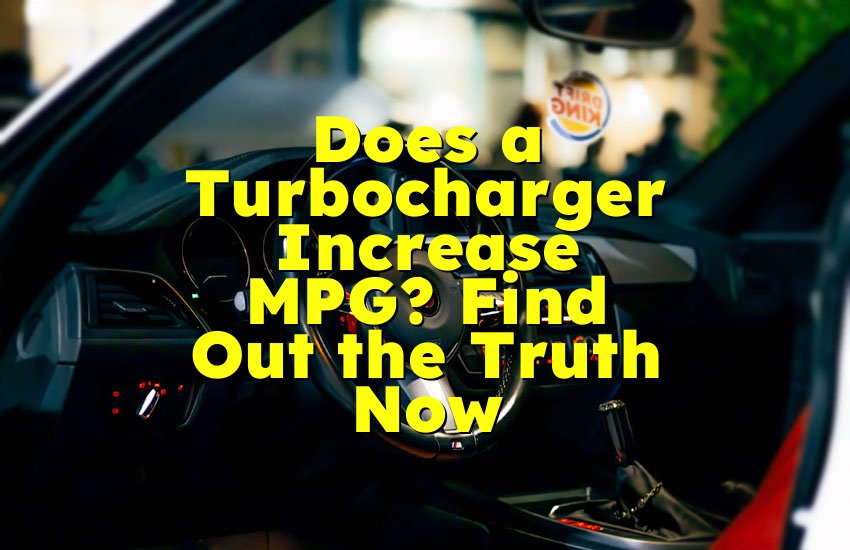As an Amazon Associate, I earn from qualifying purchases at no extra cost to you.
Fuel Injectors Problems: How to Fix and Avoid Costly Issues
If your car is shaking, losing power, or using too much fuel, you’re not alone. Many drivers deal with fuel injectors problems without even knowing it. I faced this issue when my car started jerking at red lights. After a proper check, it turned out to be dirty fuel injectors. In this article, you will learn how to fix and prevent these problems easily and save big money.
Understanding What Fuel Injectors Do and Why They Matter
Fuel injectors are small parts in your car’s engine, but they do a big job. They spray fuel into the engine at just the right time and in the right amount. This helps your engine run smoothly, use fuel properly, and give power to your car. If the fuel injectors do not work the way they should, your car starts to suffer.
Many people do not think about fuel injectors until their car starts giving trouble. The engine may start rough, use more gas, or stop in the middle of the road. In some cases, your car might not even start. When injectors get dirty or clogged, they cannot spray fuel the right way. This causes a mix of problems.
I remember once driving to work, and my car began to jerk when I stopped at red lights. I thought it was the engine or battery. But after taking it to a mechanic, he found the fuel injectors were dirty. A simple cleaning fixed the issue. If I had waited longer, it could have damaged the engine badly.
There are also cases when fuel injectors leak. That can be dangerous because leaking fuel near the engine can catch fire. That is why it is important to take fuel injector problems seriously. Sometimes, the fuel injectors wear out because of age or low-quality fuel. Regular care and using clean fuel can keep them healthy for longer.
You can also hear clicking or ticking noises if your injectors are not working right. These sounds come from the injectors not opening and closing correctly. If the car smells like gas or fails to start quickly, injectors might be the problem.
Some people think only old cars have fuel injector issues. But even new cars can face this if low-quality gas or poor maintenance is involved. Keeping the fuel system clean is a smart way to protect your engine and save on big repairs later.
- Fuel injectors spray fuel into the engine
- Bad injectors cause rough idle, jerking, or poor fuel use
- Dirty or clogged injectors need cleaning
- Leaking injectors can be dangerous
- Strange smells or noises may point to bad injectors
- Even new cars can have these problems
Signs That Show You Have Fuel Injector Problems
When your car starts to behave strangely, it might be trying to tell you something. Fuel injectors are often behind many engine problems, but their signs are easy to miss. You might think it is just a bad day for your car, but these small signs can turn into big repair bills if ignored.
One of the most common signs is a rough idle. This means your engine shakes when the car is not moving. It feels like the engine is trying to keep running but struggling. This can happen when the fuel injectors are clogged and can’t spray fuel smoothly.
Another clear sign is poor fuel economy. If you notice you are filling your tank more often than usual, your injectors might be the reason. When they do not spray fuel correctly, the engine uses more gas to run the same way.
The smell of fuel around your car is also a strong sign. Fuel injectors may be leaking, and this is both wasteful and risky. Gas fumes can build up and may lead to fire if not fixed quickly. You may also hear a clicking noise from the engine area, which means the injector is struggling to open or close.
Engine misfires are another warning. If your car shakes or jerks while driving, or the engine feels like it is losing power, your injectors may not be giving the fuel properly. This can damage the engine if you keep driving like that.
Starting trouble is also linked to injectors. A car that takes too long to start or doesn't start easily may have injector issues. When injectors don't work well, the engine doesn't get enough fuel to fire up fast.
You may also see the check engine light come on. This light can mean many things, but one common reason is a problem in the fuel system. It is best to get your car scanned and checked quickly.
- Rough idle or shaking engine
- Bad fuel economy
- Smell of fuel or gas around car
- Clicking noise from engine
- Engine misfires or jerks
- Trouble starting the car
- Check engine light comes on
Causes Behind Fuel Injector Problems
Understanding why fuel injectors go bad helps in stopping the problem before it gets worse. The main reason for most issues is dirty fuel. Gasoline may have tiny dirt, water, or other materials that slowly block the injectors.
Fuel injectors have small holes to spray fuel. If those holes get blocked, the injector cannot spray fuel in the right amount. This makes the engine weak or rough. This usually happens when you use cheap or low-quality fuel.
Another reason is old age. Like any part in your car, injectors wear out over time. After many miles, the inside parts of the injector may stop working right. They may get stuck, leak, or fail to open fully.
Some cars suffer from poor maintenance. If you do not clean the fuel system regularly, injectors build up carbon and other waste. Skipping oil changes and not using fuel system cleaners can lead to long-term problems.
Water in the fuel is another danger. This happens in areas with high moisture or when fuel tanks are not sealed well. Water can rust the inside of the injectors and reduce their life quickly.
Fuel pressure problems can also harm injectors. If the fuel pump or fuel pressure regulator is faulty, it can send too much or too little pressure to the injector. This damages the nozzle or seal of the injector.
Sometimes, problems come from the electrical side. Each injector works with an electric signal. If the wires or computer system have errors, the injectors may fail to spray fuel at the right time.
- Dirty fuel blocks injector holes
- Old injectors wear out over time
- Skipping fuel system cleaning causes problems
- Water in fuel can rust injectors
- Wrong fuel pressure harms injector parts
- Electrical issues can affect injector timing
Cleaning and Repairing Fuel Injectors
If your fuel injectors are dirty or not working right, the good news is you can often fix them without replacing. Cleaning is the first and easiest way. There are two ways to do it: adding fuel injector cleaner in your gas tank, or removing the injectors for deep cleaning.
The gas tank method is simple. You buy a fuel injector cleaning liquid and pour it into the fuel tank. As the car runs, the cleaner goes through the injectors and helps remove dirt. This method is good for light dirt or for regular care.
For heavy dirt or blockages, you may need professional cleaning. A mechanic will remove the injectors and use special machines and solutions to clean them deeply. This costs more but gives better results.
If cleaning does not help, then repair or replacement may be needed. Sometimes the injector tip is damaged or leaking. Mechanics can replace small parts inside the injector or seal leaks. But if the damage is big, replacing the whole injector is better.
You can also try cleaning the fuel rail and using better fuel in the future. Keeping the fuel system clean helps prevent more problems. Some people clean their injectors every 25,000 to 30,000 miles to avoid trouble.
If you enjoy working on cars, you can learn to remove and clean injectors at home. Just be careful with tools and follow your car's manual. Always wear gloves and safety glasses.
- Fuel injector cleaner works for light dirt
- Deep cleaning helps with heavy blockages
- Damaged injectors may need repair or change
- Clean injectors every 25,000 miles
- You can clean injectors at home if careful
How to Prevent Fuel Injector Problems
Stopping injector problems before they start is the best way to save time and money. The first thing to do is always use good quality fuel. Cheap gas may save a little now but can cost a lot later.
Next, use fuel system cleaner every few months. These cleaners help keep the injectors and the fuel line clean from carbon and other dirt. They are cheap and easy to use.
Changing the fuel filter on time also helps. The filter stops dirt before it reaches the injectors. If the filter is full or old, dirt will go through and clog the injector.
Avoid letting your gas tank run too low. When fuel is low, the dirt and water at the bottom of the tank get pulled into the fuel line. This can lead to clogged injectors or water damage.
Make sure your car’s fuel pump and pressure system are working right. Wrong pressure can cause injector damage. You should also get regular engine checks to catch any early problems.
If you live in a cold or wet area, use fuel additives that remove water from the fuel. This protects the injectors from rust and corrosion.
Lastly, drive your car regularly. Long breaks can cause fuel to turn bad and block the injectors. If your car sits for weeks or months, start it once in a while to keep fuel moving.
- Use high-quality fuel
- Add fuel cleaner every few months
- Change fuel filter on time
- Avoid running fuel tank too low
- Check fuel pressure system
- Remove water from fuel using additives
- Drive your car often to avoid fuel decay
Replacing Bad Fuel Injectors and What to Expect
Sometimes, no cleaning or repair works. In that case, replacing the fuel injector is the only fix. This might sound scary, but it is common and can bring your car back to perfect health.
You might need to replace just one injector or all of them. The mechanic will check which ones are damaged. Replacing one is cheaper, but replacing all can give better engine balance.
The cost depends on your car model. Each injector may cost between 50 to 200 dollars. Labor can also cost more, especially if the engine is hard to open.
Once replaced, your car should start and run much better. No more shaking, misfires, or fuel smell. It feels like driving a brand new car again.
Make sure the new injectors are good quality. Cheap ones may fail again quickly. Ask the mechanic or check reviews before buying parts.
After replacement, it is smart to use fuel system cleaner often and follow good care tips. This keeps the new injectors working well for a long time.
- Replacing injectors is sometimes the only fix
- Replace one or all based on damage
- Costs depend on car model and labor
- New injectors fix many problems quickly
- Use good quality parts for long life
- Take care of new injectors to avoid future problems
Final Thoughts
Fuel injectors problems can cause big trouble if ignored. But the good news is most of them are easy to fix or prevent. By using clean fuel, keeping your engine checked, and cleaning injectors often, you can avoid costly repairs. If the injectors fail, don’t wait too long. Fix or replace them and your car will feel brand new again. Keep your engine happy, and it will take care of you.
| Problem Sign | Likely Cause | What to Do |
|---|---|---|
| Shaking or rough idle | Clogged injector | Use cleaner or deep cleaning |
| Fuel smell | Leaking injector | Check and repair or replace |
| Poor gas mileage | Dirty or broken injector | Clean or replace |
| Engine misfire | Poor spray pattern | Deep cleaning or part replacement |
| Hard starting | Low fuel flow | Test fuel pressure and clean |
Frequently Asked Questions (FAQs)
Is it safe to drive with a bad fuel injector?
Driving with a bad fuel injector is not safe. The engine can misfire, lose power, or even shut off while driving. A leaking injector can also cause a fire if fuel drips near hot parts. Your engine may get damaged from running too lean or too rich. It is best to fix or replace a bad injector quickly to stay safe and avoid costly repairs.
Can I clean fuel injectors myself?
Yes, you can clean fuel injectors by yourself, especially if they are not badly clogged. Using a fuel injector cleaning liquid in the gas tank is easy and safe for beginners. If you are more comfortable with tools, you can remove injectors and clean them directly. Always follow your car manual and wear gloves. If unsure, let a mechanic handle it.
Do I need to replace all injectors at once?
You don’t always need to replace all injectors. If only one or two are bad, they can be replaced alone. But some people prefer replacing all of them to keep the engine balanced and avoid future trouble. If your car has many miles or the injectors are old, changing them all might be a better long-term choice.
Is it expensive to fix fuel injectors?
The cost depends on the car and the damage. Cleaning fuel injectors is cheap, especially if you do it yourself. Replacing one injector can cost between 50 to 200 dollars for the part, plus labor. Some cars have more complex engines, so the price can go higher. Taking early action helps you avoid more expensive damage later.
Can bad fuel damage injectors?
Yes, bad or dirty fuel is one of the biggest causes of injector problems. Cheap gas may contain dirt, water, or poor-quality additives. These things block the tiny holes in injectors and stop them from spraying fuel correctly. Always try to buy fuel from trusted gas stations and use fuel cleaner often to protect your engine.
Do I have to use fuel injector cleaner?
You don’t have to, but using fuel injector cleaner is very helpful. It keeps the inside of the injector clean and working well. Many drivers use it every few months as part of regular car care. It is cheap and easy to use, and it helps avoid bigger problems like clogs or poor fuel flow later on.
Is it hard to tell if an injector is bad?
Yes, it can be tricky. Bad fuel injectors often act like other engine problems. You might feel shaking, loss of power, or see the check engine light. These signs can also come from spark plugs or sensors. The best way to know for sure is to get your car checked with a scan tool or by a trusted mechanic.
Can fuel injectors go bad in new cars?
Yes, even new cars can have injector issues if the fuel is dirty or low-quality. Some new cars have more advanced systems that need clean fuel to work well. If you buy gas from bad places or drive in dusty areas, injectors can get dirty fast. Always take care of your fuel system, even in a new car.











